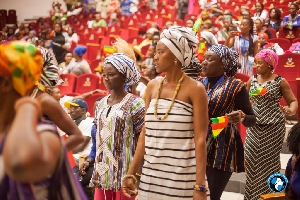Female Genital Mutilation (FGM) is considered a human rights violation that is condemned in several international conventions and treaties.
The practice has severe and long-term physical and mental implications on the lives of girls and women. This harrowing practice has lifelong physical and psychological effects.
According to UNICEF, approximately 200 million girls and women alive today are believed to have been subjected to female genital mutilation. Relief Web further reports that 80 percent of these cases are found in Africa with Somalia registering the highest percentage of victims (98% of women and girls aged 15 – 49 years).
Female genital mutilation, which involves the altering or injuring of female genitalia for no medical reason, can cause health complications including severe infection, chronic pain, depression, infertility and death. It can severely impact the sexual and reproductive health of women and girls. Women subjected to genital mutilation are at risk of postpartum haemorrhage, fatal death, obstructed labour, and HIV infection.
The psychological effects of female genital mutilation are insidious and long-lasting. Residual trauma can lead to behavioural issues in children, debilitating anxiety, stress, and sexual dysfunction.
The root causes of FGM are complex and include a mix of socio-cultural beliefs, religious factors rooted in gender inequality, and discrimination. FGM violates the right to health and there is no medical justification for the practice. Despite laws against it, the practice remains widespread, in parts of the world because of persistent poverty and gender inequality. Female genital mutilation thus limits opportunities for women and girls around the world to exercise their rights and realize their full potential.
In 2024, nearly 4.4 million girls – more than 12,000 a day – are at risk around the world. Unless efforts to end this practice intensify, the number of girls at risk is projected to rise to 4.6 million in 2030. An estimated $2.75 billion is needed to end the practice by 2030 in 31 priority countries (UNFPA). Urgent investments and action are thus needed to reach the Sustainable Development Goals target of eliminating female genital mutilation by 2030.
The leadership of women and girls is key to accelerating progress, as well as contributing to equitable social and economic development and ensuring that no girl or woman is left behind. Women-led and survivor-led organizations, especially at the grassroots level, have an in-depth understanding of the challenges that women and girls face and are vital resources on how to advance their rights, which resonates with this year’s theme of the International Day of Zero Tolerance for Female Genital Mutilation: “Her Voice. Her Future. Investing in Survivor-Led Movements to End Female Genital Mutilation.”
It is against this backdrop that the Young African Women Congress Network is joining its voice with other women’s rights organizations to strongly denounce this global plague which continues to undermine the rights of young girls and women in Africa thereby constituting a stumbling block to the advancement of gender equality and achievement of the full potentials of young girls and women.
DO NOT CUT HER.
STOP FGM NOW!!!
Press Releases of Wednesday, 7 February 2024
Source: YAWC Network













